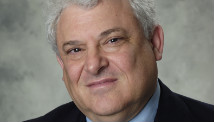STORY HIGHLIGHTS
- N. Korea said Thursday it plans to carry out new nuclear test and more long-range rocket launches
- It said they are part of new phase of confrontation with United States
- George A. Lopez says North Korea's aim is to be recognized as a 'new nuclear nation by fait accompli'
- The Security Council sanctions aim to deteriorate and disrupt N. Korea's programs, says Lopez
Editor's note: George A. Lopez holds the Hesburgh Chair in Peace Studies at the Kroc Institute, University of Notre Dame. He is a former member, UN Panel of Experts on DPRK.
Indiana, U.S. (CNN) -- North Korea has responded to new Security Council sanctions condemning its December 12 rocket launch with a declaration that it plans a third nuclear test and more missile launches. Politically, it has made unambiguous that its "aim" is its enemy, the United States.
In this rapid reaction to U.N. sanctions, the young government of Kim Jong Un underscores what Security Council members have long known anticipated from the DPRK. Their end-game is to create a vibrant, integrated missile and nuclear weapons program that will result - as in the cases of Pakistan and India - in their being recognized as a new nuclear nation by fait accompli.
Read more: North Korea says new nuclear test will be part of fight against U.S.
In light of DPRK defiance - and a soon to occur nuclear test - the Security Council's first set of sanctions on North Korea since 2009 may seem absurd and irrelevant. These sanctions will certainly not prevent a new DPRK nuclear test. Rather, the new sanctions resolution mobilizes regional neighbors and global actors to enforce sanctions that can weaken future DPRK programs and actions.
Read more: U.N. Security Council slams North Korea, expands sanctions
The utility, if not the necessity, of these Security Council sanctions are to deteriorate and disrupt the networks that sustain North Korea's programs. Chances of this degradation of DPRK capabilities have increased as the new sanctions both embolden and empower the member states who regularly observe - but do nothing about - suspicious vessels in their adjacent waterways.
The resolution provides new guidance to states regarding ship interdiction, cargo inspections, and the seizure and disposal of prohibited materials. Regarding nuclear and missile development the sanctions expand the list of material banned for trade to DPRK, including high tech, dual-use goods which might aid missile industries.
Read more: South Korean officials: North Korean rocket could hit U.S. mainland
These new measures provide a better structure for more effective sanctions, by naming new entities, such as a bank and trading companies, as well as individuals involved in the illicit financing of prohibited materials, to the sanctions list. To the surprise of many in the diplomatic community - the Council authorizes states to expose and confiscate North Korea's rather mobile "bulk cash." Such currency stocks have been used in many regions to facilitate purchases of luxury goods and other banned items that sustain the DPRK elites.
Finally, the Security Council frees the Sanctions Committee to act more independently and in a timely manner to add entities to the list of sanctioned actors when evidence shows them to be sanctions violators. This is an extensive hunting license for states in the region that can multiply the costs of sanctions to the DPRK over time.
Read more: North Korea's rocket launches cost $1.3 billion
Whatever their initial limitations, the new round of U.N. sanctions serve as a springboard to more robust measures by various regional and global powers which may lead back to serious negotiations with DPRK.
Despite its bluster and short-term action plan, Pyongyang recognizes that the wide space of operation for its policies it assumed it had a week ago, is now closed considerably. To get this kind of slap-down via this Security Council resolution - when the launch was a month ago - predicts that any nuke test or missile launch from Pyongyang will bring a new round of stronger and more targeted sanctions.
Read more: North Korea silences doubters, raises fears with rocket launch
Although dangerous - a new game is on regarding DPRK. Tougher U.N. measures imposed on the North generated a predictable response and likely new, prohibited action. While DPRK may be enraged, these sanctions have the P5 nations, most notably China, newly engaged. A forthcoming test or launch will no doubt increase tensions on both sides.
But this may be precisely the shock needed to restart the Six Party Talks. Without this institutional framework there is little chance of influencing DPRK actions. And in the meantime, the chances of greater degrading of DPRK capabilities via sanctions, are a sensible next best action.
Read more: Huge crowds gather in North Korean capital to celebrate rocket launch
The opinions expressed in this commentary are solely those of George A. Lopez.















